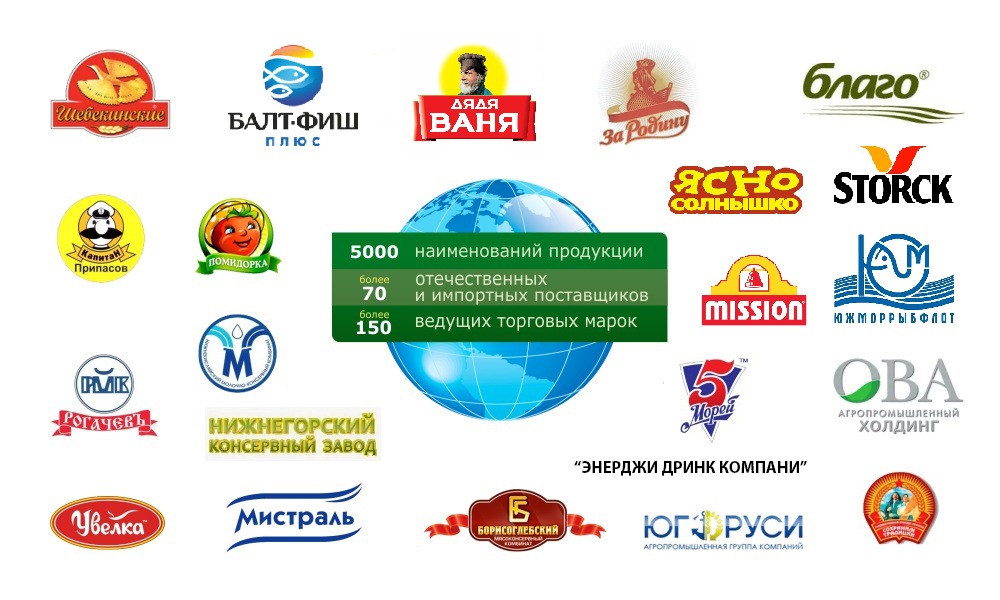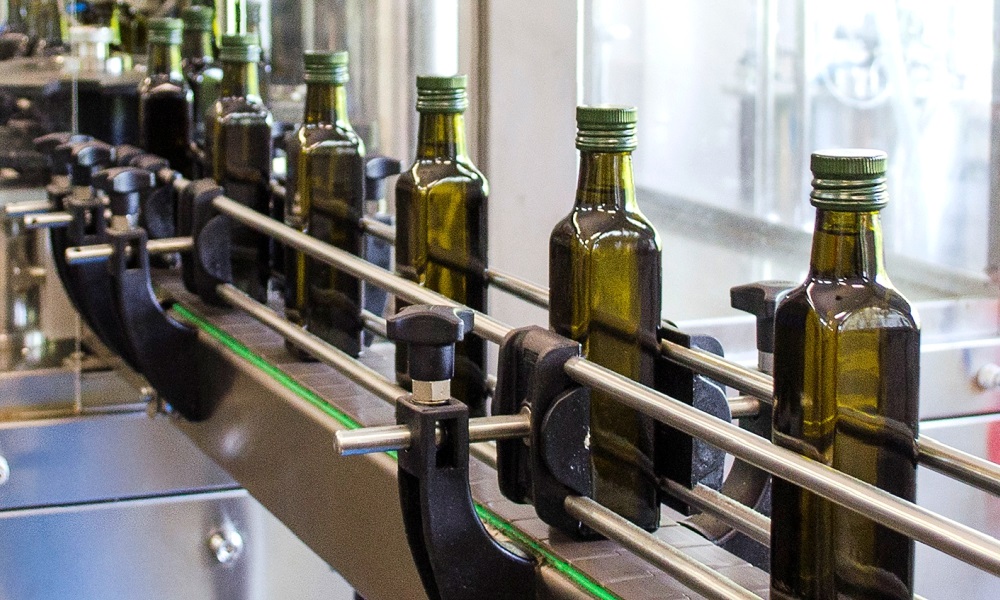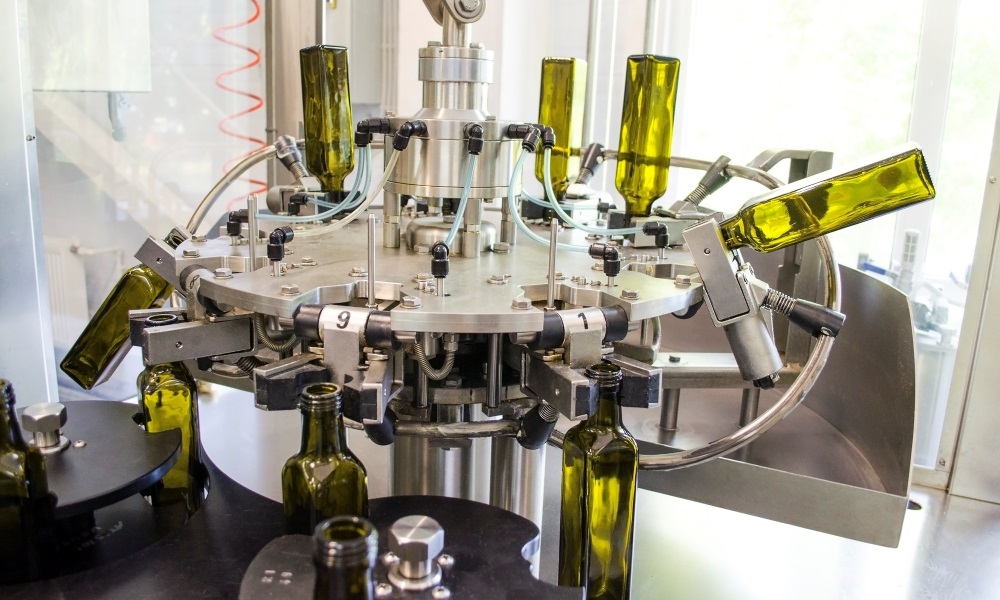Ecoland
group
Ecoland
б Fast and accurate delivery of more than 5000 orders daily throughout Russia. Structured warehouse storage system. Modern fleet of vehicles, high safety of goods, routes "from warehouse to door"
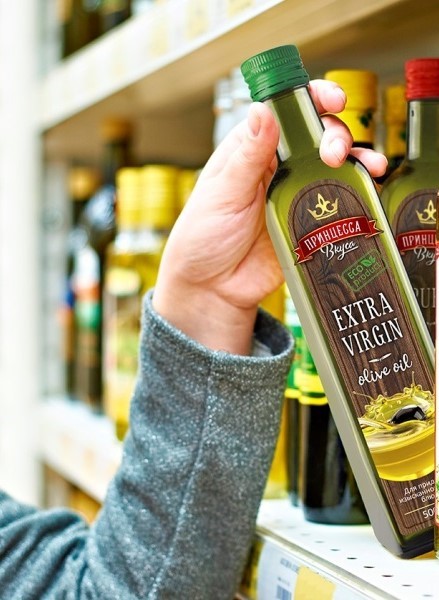
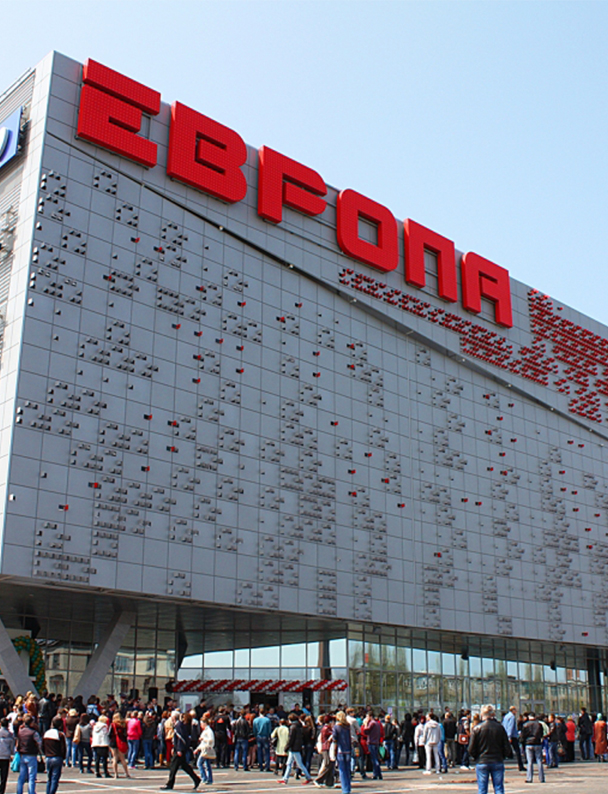


Компания ООО "ААРД" и "Эколенд" сотрудничают уже много лет. За это время мы выстроили эффективные бизнес отношения, которые позволяют ежегодно достигать внушительных результатов. Поставки продукции производятся точно в срок, заказы оформляются оперативно. Ассортиментный портфель "Эколенд" постоянно пополняется, что дает возможность обновлять позиции на полках сети (торговой точки... смотря кто партнер). В качестве товара не приходится сомневаться, продукция сертифицирована и соответствует самым жестким требованиям. Благодарим компанию "Эколенд" за клиентоориентированный подход в сотрудничестве и надеемся на дальнейшую плодотворную работу.
Компания ООО "Европа" ценит грамотный бизнес подход "Эколенд" в выстраивании партнерских отношений. Условия сотрудничества выполняются на 100%. Продукция поставляется точно в срок, качество соответствует заявленным характеристикам. Отметим и оперативность, гибкость, лояльность в решении возникающих в процессе совместной работы вопросов. Выражаем благодарность за удобное, выгодное и ориентированное на результат сотрудничество.
Компания "Каргилл" выражает глубокую призвательность и искреннюю благодарность за успешную работу и вклад в развитие продаж продукции торговых марок "Вегафрай", "Знатное", Sunny Gold".
Выражаем Вам нашу искреннюю благодарность и глубокую признательность за плодотворное сотрудничество на протяжении долгого времени. Мы высоко ценим совместную работу с Вашей компанией и верим в сохранение сложившихся деловых и дружеских отношений, надеемся на дальнейшее взаимовыгодное сотрудничество.
Желаем успешного развития, экономической стабильности и достижения новых вершин в бизнесе.
Наши новости
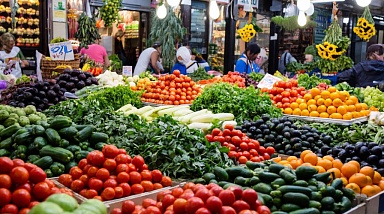
По данным опроса, проведенного в декабре 2025 года производителем яблок «Золотое-Молодое» среди более 1,5 тысяч жителей крупных городов старше 18 лет, россияне заметно нарастили траты на свежие фрукты и овощи за прошедший год. Это касается как месячного, так и недельного бюджета.
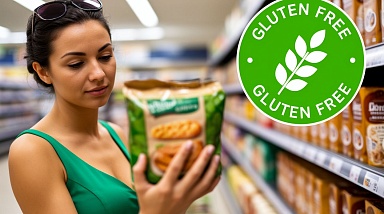
Роскачество собирается разработать национальные стандарты (ГОСТы) для безглютеновых и безаллергенных продуктов питания. Об этом 12 января 2026 года сообщил руководитель организации Максим Протасов в интервью ТАСС.
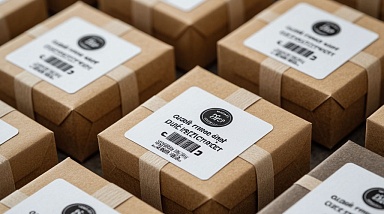

Чтобы узнать, какие блюда россияне планируют готовить в этот раз, на какие продукты сделают ставку и как изменится бюджет праздника, бренд оливкового масла Vegetelle провёл исследование. Его результаты показывают: грядущий 2026 год мы встречаем в духе традиций, но с акцентом на качество, осознанность и пользу.

Правительство Российской Федерации приняло решение об изменении системы взимания платы "Платон" для большегрузных автомобилей массой свыше 12 тонн. Соответствующее постановление № 1901 от 27 ноября 2025 года официально опубликовано.
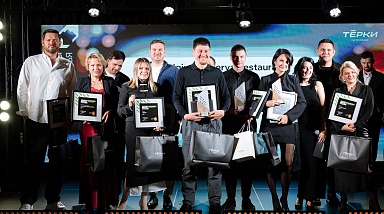
Торговая марка «Vegetelle» приняла участие в первой гастрономической премии Черноземья «Тёрки» в качестве регионального партнёра, поддержав важную инициативу, направленную на развитие кулинарной культуры и индустрии гостеприимства региона.

Роскачество подтвердила качество и чистоту оливкового масла Vegetelle

По данным консалтинговой компании NF Group, за девять месяцев 2025 года доля e-commerce в объёме сделок со складской недвижимостью в Московском регионе снизилась с 65% до 34% по сравнению с аналогичным периодом прошлого года. При этом производственные компании увеличили свою долю до 30%.
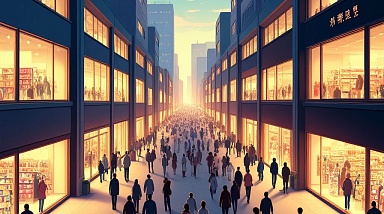
Согласно данным аналитиков, российский ритейл переживает волну консолидации из-за снижения покупательской активности населения, отмечает издание «Коммерсантъ».
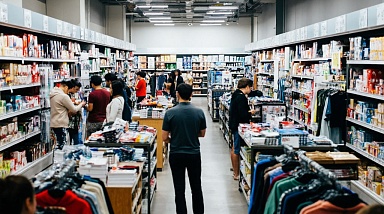
По данным анализа от «Авито Подработки» и сети «Ашан», в третьем квартале 2025 года в России значительно увеличился интерес работодателей к частичной занятости в сфере ритейла.

С 12 сентября 2025 года вступили в силу изменения в правила маркировки медицинских изделий, утвержденные постановлением Правительства РФ от 12.09.2025 № 1409. Основные изменения касаются сроков введения обязательной маркировки для отдельных категорий товаров.

С 1 октября 2026 года в России начал действовать новый закон о платформенной экономике (Федеральный закон № 289-ФЗ от 31.07.2025), который установит единые правила работы для всех маркетплейсов страны. Этот законодательный акт закладывает правовые основы для развития платформенной экономики и регулирует взаимоотношения между операторами цифровых платформ, их партнерами и конечными пользователями.

С началом октября в системе маркировки «Честный знак» стартовал новый этап внедрения обязательной маркировки для нескольких категорий товаров. На текущий момент в системе зарегистрировано уже 940 тысяч компаний, и их количество продолжает увеличиваться.
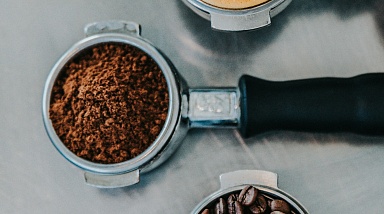
Кофейный рынок продемонстрировал значительный рост цен. Особенно заметно подорожала робуста, стоимость которой увеличилась на 50% за последний месяц. Не отстает и арабика, показавшая рост на 29%. Параллельно с кофе существенный рост продемонстрировали другие сельскохозяйственные товары: сахар и соевые бобы подорожали на 4,9% каждая.
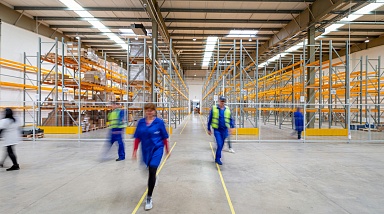
В первом полугодии 2025 года на рынке складской недвижимости России наблюдается существенное снижение активности. Общий объем сделок составил 1,7 миллиона квадратных метров, что на 51% меньше показателя аналогичного периода прошлого года, когда этот показатель достигал 3,4 миллиона квадратных метров.
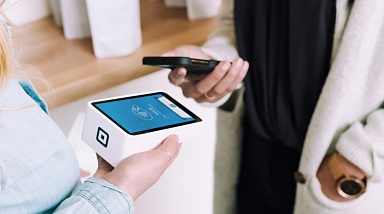
Федеральная налоговая служба в письме от 27 августа 2025 года № АБ-4-20/7882@ сообщила о неизменности сроков вступления в силу обновленных требований к оформлению фискальных документов. Изменения, предусмотренные приказом ФНС от 26 марта 2025 года № ЕД-7-20/236@, начнут действовать с 1 сентября 2025 года.
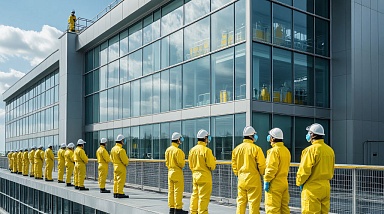
На пищевых предприятиях существует серьезная угроза от различных видов вредителей, среди которых можно выделить насекомых, грызунов и птиц. К насекомым относятся тараканы, муравьи, моль, жуки и мухи. Грызуны представлены крысами и мышами, а среди птиц встречаются различные виды, способные проникать на территорию предприятия.

Искусственный интеллект стремительно проникает в сферу корпоративного управления. Согласно последним исследованиям, подавляющее большинство компаний (86%) планируют делегировать ИИ часть управленческих функций уже к 2030 году.
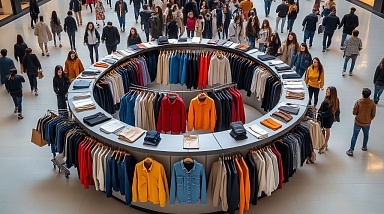
В первом полугодии 2025 года на рынке фэшн-ритейла наблюдается заметное снижение активности пользователей в сегменте масс-маркета. Показатель уменьшился на 8% по сравнению с аналогичным периодом прошлого года. При этом средний чек в ресейле продолжает оставаться выше масс-маркета на 21%, хотя разрыв постепенно сокращается — в первом полугодии 2024 года превышение составляло 32%.
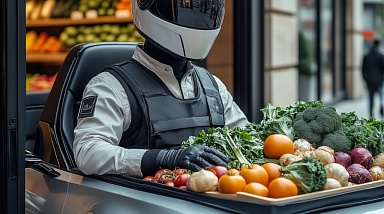
Исследование показало, что частота заказов в сервисах доставки продуктов существенно различается среди пользователей. Лишь небольшая часть клиентов — 13% — оформляют заказы ежедневно.
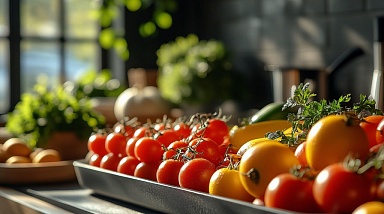
В сфере розничной торговли грядут серьезные изменения. Автоматизированная система штрафов будет работать по принципу дорожных камер фиксации нарушений. При попытке продать товар с истекшим сроком годности система автоматически зафиксирует нарушение и направит штраф юридическому лицу.

Налоговая реформа для торгового сектора может получить новый виток развития. Правительство РФ совместно с организацией «Деловая Россия» планируют пересмотреть параметры упрощенной системы налогообложения (УСН) для торговых предприятий.
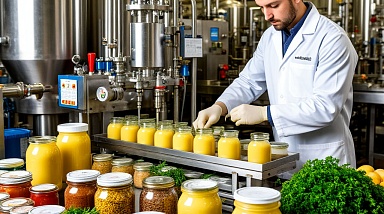
В последнее время майонезная индустрия в России показывает впечатляющие результаты развития. Отечественные производители активно увеличивают объёмы выпуска популярного соуса, что напрямую связано с неугасающим интересом потребителей к этому продукту.

Торговая марка «Vegetelle» стала официальным участником фестиваля «Угли-мугли»
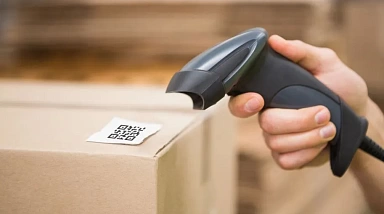
С 1 сентября 2025 года в России начинается новый этап в развитии системы контроля товаров. В этот период вводится обязательная маркировка для нескольких важных категорий продукции, включая детские товары, кондитерскую продукцию и строительные материалы.
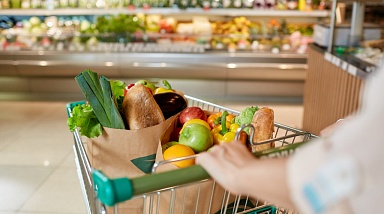
В сфере пищевой промышленности назревает серьезный конфликт между производителями и регуляторами. Отраслевые ассоциации «Союзмолоко», «Русбренд» и «Руспродсоюз» выразили серьезную озабоченность по поводу планируемых изменений в закон о стандартизации.

В период активного использования грилей (гриль-сезон) доля онлайн-покупок составляет всего 5-7% от общего объема продаж. Такой низкий показатель обусловлен несколькими факторами, влияющими на покупательское поведение в этой категории товаров.
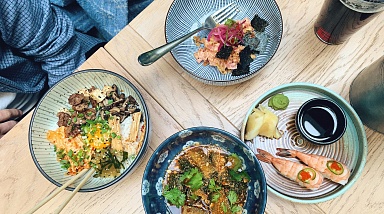
Такой значительный рост затрагивает все категории продуктов питания и существенно влияет на потребительский бюджет.
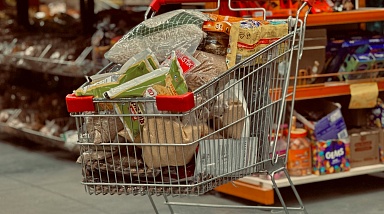
Законопроект о введении обязательного указания торговой наценки на ценниках продуктов питания может быть внесен в Государственную Думу. Инициатива направлена на повышение прозрачности ценообразования и защиту прав потребителей.

Масштабное исследование было проведено сервисом «Супермаркеты» от «Т-Банка» в сотрудничестве с аналитическим проектом T-Data. В ходе работы специалисты проанализировали покупки по наиболее востребованным категориям продуктов питания.

Продажи мясных консервов в российских магазинах показали значительный рост. В денежном выражении они увеличились на 25%, а в натуральном — на 18,5%.

Текущее положение показывает неоднозначное отношение потребителей:
- 47% россиян не готовы полностью отказаться от физических магазинов
- 33% рассматривают возможность перехода на онлайн-покупки в перспективе

Федеральная антимонопольная служба России сообщила о важных изменениях в правилах оплаты скоропортящихся продуктов торговыми сетями. Ранее торговые сети должны были оплачивать поставленные продукты со сроком годности менее 10 дней в течение 8 рабочих дней с момента их получения.

С 1 марта 2025 года в России начался второй этап обязательной маркировки рыбных консервов, который затрагивает предприятия малого бизнеса.
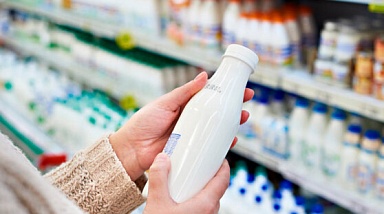
Анализ рынка молочной продукции показывает значительные изменения в структуре продаж и ассортименте.
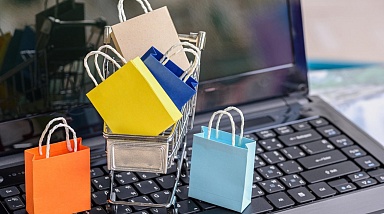
Анализ показателей прошедшего Киберпонедельника, который проходил с 27 по 29 января, демонстрирует интересную динамику рынка электронной коммерции.

По данным за январь-ноябрь 2024 года, объем закупок достиг 4000 тонн, что втрое превышает показатели аналогичного периода предыдущего года.

Глубокая трансформация российского потребительского рынка меняет и потребительское поведение, которое, в свою очередь, зависит от специфики форматов и каналов продаж. На главной пленарной дискуссии выставки продуктов питания WorldFood Moscow – 2024 эксперты крупнейших FMCG-ритейлеров пытались ответить на вопрос, кто же он, современный покупатель розничных торговых сетей?

В 2024 году на российском рынке ритейла не наблюдалось тектонических сдвигов, однако произошло несколько заметных событий

Специалисты «Руспродсоюза» подсчитали, что стоимость продуктов для новогоднего стола составит как минимум 8 100 рублей.
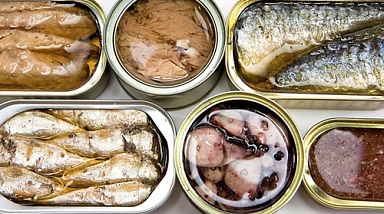
В России стартовал первый этап обязательной маркировки рыбных консервов, направленный на борьбу с нелегальным рынком и повышение прозрачности цепочки поставок.

По данным специалистов, стоимость логистики для коммерческих предприятий в среднем выросла на 29,7% по сравнению с предыдущим годом.

Федеральная налоговая служба (ФНС) и российские маркетплейсы начали реализацию пилотного проекта, направленного на донастройку систем внутреннего контроля и оперативный обмен информацией с налоговыми органами.
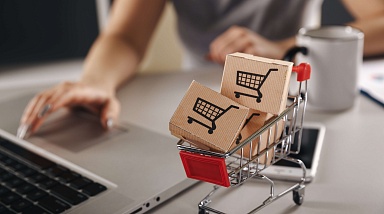
В настоящий момент импортные товары, которые россияне заказывают в интернет-магазинах, не облагаются налогом в России.
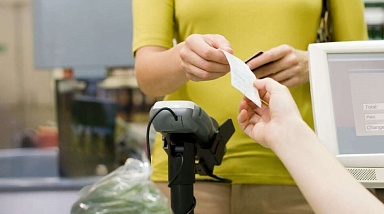
С 1 января 2025 года новые ставки по налогу на добавленную стоимость (НДС) 5% и 7% должны быть указаны в кассовых чеках организаций и предпринимателей, работающих на упрощенной системе налогообложения, в соответствии с нормами Федерального закона № 176-ФЗ.
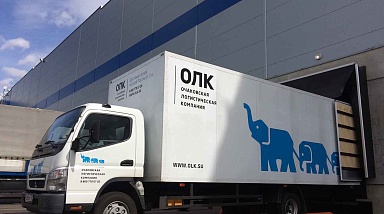
О необходимости индивидуального подхода к работе с клиентами сказано уже немало. Однако немногим удается реализовать его таким образом, чтобы не только соблюсти коммерческие интересы контрагентов, но и открыть новые направления взаимодействия.

Логистический оператор «Деловые Линии» отмечает значительный рост спроса на доставку малогабаритных грузов по итогам первого полугодия 2024 года.
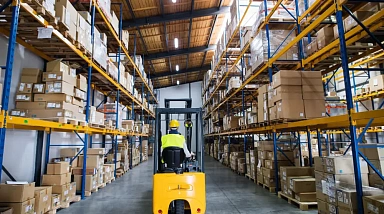
Согласно оценкам экспертов, дефицит складских площадей в Москве, Московской области и регионах сохранится еще как минимум 2–3 года. По итогам 5 месяцев 2024 года компания IBC Retail Estate отмечает преобладание сделок built-to-suit над спекулятивными объектами, которые не покрывают высокий уровень спроса.

По итогам первого полугодия 2024 года расчётный показатель операционной прибыли (EBITDA) «Почты России» по Международным стандартам финансовой отчётности (МСФО) вышел в положительную зону впервые с 2019 года и составил 101 миллион рублей. Для сравнения, в аналогичном периоде 2023 года был зафиксирован убыток в размере -3,2 миллиарда рублей.
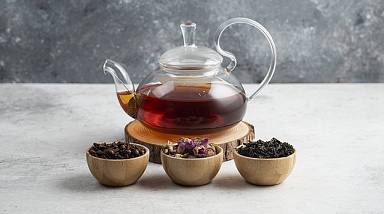
Зампред общественного совета при Роспотребнадзоре Олег Павлов обратился в Минпромторг и к главе кабмина Михаилу Мишустину с предложением распространить цифровой контроль на продукцию от производителей чая.

В августе 2024 года средняя стоимость букета цветов в России составила 1788 рублей, что на 26% выше, чем годом ранее. Больше всего на цветы тратят жители Москвы, где средняя цена букета составляет 2307 рублей.
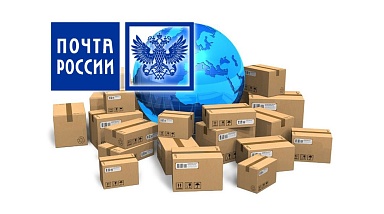
«Почта России» провела анализ экспортных потоков за первое полугодие 2024 года и обнаружила, что количество отправлений в Китай увеличилось на 11% по сравнению с аналогичным периодом прошлого года.

Исследование, проведённое компанией «Ашманов и партнёры», показало, что репутация компаний важна для 73% покупателей. Из них 37% придают ей высокое значение, а 36% выше среднего. Это подчёркивает значимость формирования положительного имиджа для успешного ведения бизнеса.

Первопроходцем в технологии растительного мяса считается калифорнийская компания Beyond Meat. Её выход на массовый рынок произошёл в 2019 году, когда она вышла на NASDAQ. На старте акции амбициозного стартапа купили такие знаменитости, как Леонардо Ди Каприо и Билл Гейтс, что вызвало бурную реакцию на бирже.
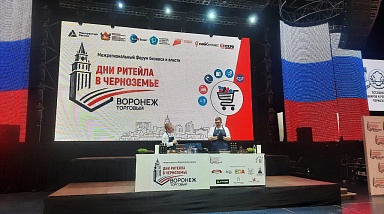
Форум собрал представителей розничных сетей, поставщиков и производителей товаров, а также экспертов в области торговли и логистики. Участники обсудили актуальные вопросы развития розничной торговли в регионе, обменялись опытом и определили перспективы сотрудничества.

Российские работодатели сталкиваются с серьёзной проблемой дефицита кадров, которая затрагивает практически все отрасли. В ресторанной индустрии, по словам Натальи Карпенко из TanukiFamily, ощущается нехватка линейного персонала, наблюдается текучка кадров, а сотрудники часто оказываются неподготовленными или предъявляют завышенные требования.

С 26 по 27 июля в городе Воронеж на площадке МТС Live Hall состоится межрегиональный форум «Дни ритейла в Черноземье». Мероприятие организовано совместно с проектом «Воронеж Торговый».

Участники мебельного рынка в Москве заметили, что после ухода зарубежных брендов у местного бизнеса появились новые возможности.

По итогам последнего обновления реестра субъектов МСП число зарегистрированных малых и средних предприятий превысило 6,56 млн, обновив рекорд с момента начала их учета.

C 1 сентября текущего года начнется обязательная маркировка кормов для животных и ветеринарных препаратов в России, следует из Постановлений Правительства Российской Федерации от 27.05.2024 №674

СДЭК возобновил работу после масштабного сбоя. Специалисты устранили все проблемы, и теперь сервис работает в штатном режиме. Сайт, личные кабинеты и мобильное приложение функционируют без сбоев.

Мерчандайзинг, как стратегия визуального представления товаров для увеличения их привлекательности и продаж, постоянно развивается и приспосабливается к изменяющимся требованиям рынка.

8 мая Центральный районный суд Челябинска принял решение полностью удовлетворить иск Генеральной прокуратуры о взыскании имущества с АО «Макфа» и связанных с ним компаний, а также с некоторых физических лиц. Компанию решено национализировать немедленно.
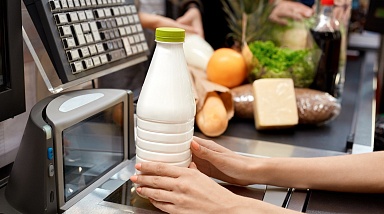
Система блокировки просроченной продукции работает одинаково эффективно как на обычных кассах, так и на кассах самообслуживания в торговых сетях.
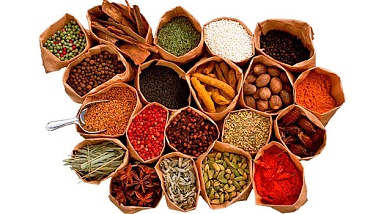
Эксперимент по маркировке специй, приправ, соусов, уксуса, чипсов, семечек, сухариков и попкорна пройдёт с 1 июля 2024 года по 28 февраля 2025 года.

С 1 апреля 2024 года юридические лица и индивидуальные предприниматели смогут использовать систему быстрых платежей для перевода средств друг другу.
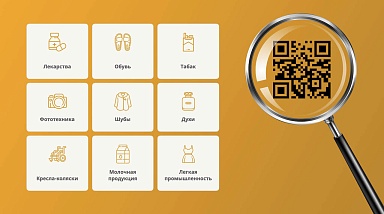
Разрешительный порядок продажи товаров, подлежащих маркировке, означает, что продажа таких товаров может осуществляться только при наличии соответствующего разрешения или лицензии. Это связано с тем, что маркировка товаров является способом контроля за их оборотом и качеством. Без соответствующего разрешения продажа таких товаров может нарушать законодательство и привести к штрафам со стороны контролирующих органов.
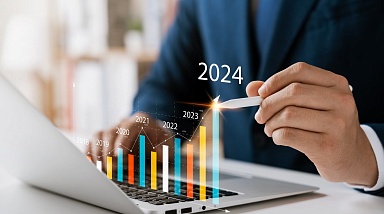
На фоне роста реальных располагаемых доходов покупателей, высокого индекса покупательского оптимизма и улучшения ассортимента товаров в 2024 году можно ожидать продолжения роста потребительской активности, увеличения объемов продаж и инвестиций в ритейл. Возможно также развитие новых форматов магазинов, расширение онлайн-торговли и улучшение качества обслуживания покупателей. Однако, эти прогнозы могут измениться в зависимости от экономических и геополитических факторов, которые будут преобладать в 2024 году.
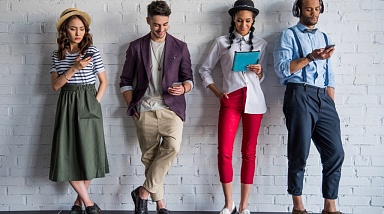
Портрет поколения Z в целом похож на среднестатистический: это омниканальный, рациональный и склонный к экономии покупатель. Однако, в отличие от более взрослой аудитории, зумеров отличает особая лояльность к любимым маркам.
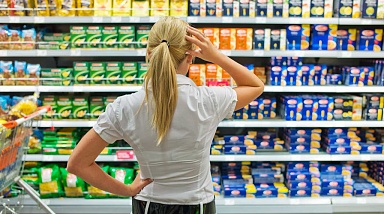
Для оптимизации мерчандайзинга и промомеханик существует ряд инструментов и методов, которые помогают улучшить эффективность и результативность торговых акций.

Если у вас уже есть 10 партнеров или более и вы регулярно работаете с ними, то создание портала для работы с поставщиками может значительно облегчить вашу жизнь и работу. Это не только сократит время, затрачиваемое на управление отношениями с поставщиками, но и поможет улучшить коммуникацию между всеми сторонами. В результате, вы сможете увеличить эффективность работы и улучшить качество вашего сервиса для клиентов.
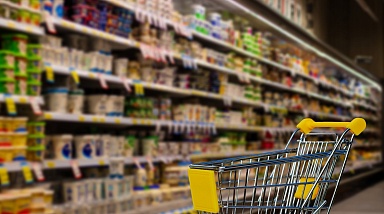
Разработчик e-commerce решений Aero и Retail Business Russia провели серию опросов и глубинных интервью с крупнейшими игроками российского ритейлера. Вот основные результаты исследования.
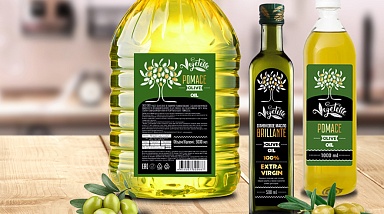
Наш ассортимент оливковых масел стал еще богаче. В бренд-портфель вошла продукция компании “Vegetelle”.

По итогам ноября 2023 года, сфера розничной торговли заняла четвертое место среди отраслей с наибольшим числом вакансий, причем за год число вакансий в этой сфере увеличилось на четверть.

В 2023 году Россия стала крупнейшим импортером мандаринов в мире, импортировав 406 тысяч тонн мандаринов за первые 9 месяцев года.
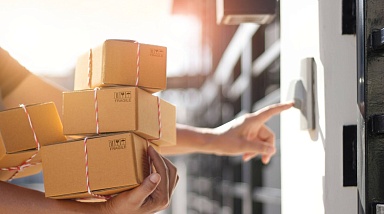
Новый ГОСТ, регулирующий условия доставки товаров, был разработан с учетом опыта ведущих игроков на российском рынке и мировых практик. Он включает требования к организации доставки, используемому транспорту и самим доставщикам. Этот стандарт призван обеспечить потребителям более высокий уровень сервиса и защитить их права.

Аналитики компании Ventra Go! провели опрос среди представителей массовых профессий и выявили некоторые тенденции на рынке труда. В исследовании приняли участие более 1000 респондентов.

Службы доставки входят в число отраслей с наибольшим спросом на персонал в ноябре 2023 года, согласно аналитическому сервису SuperJob. Спрос на курьеров особенно возрастает в предновогодний период. В целом по России количество вакансий за месяц увеличилось на 19%.

Согласно данным Росстата, в октябре 2023 года цены на апельсины выросли на 80% по сравнению с прошлым годом и составили в среднем 209 рублей за килограмм.
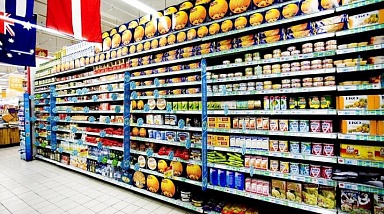
Ассоциация компаний розничной торговли (АКОРТ) выступила против проекта закона о «российской полке», который предлагает обязать магазины выделять полки для товаров отечественных производителей.
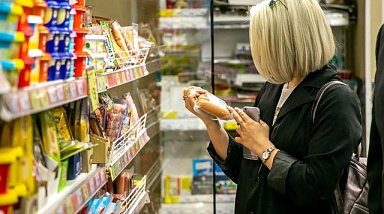
Депутатами разработан законопроект с поправками в Налоговый кодекс РФ по отмене НДС на товары для фудшеринга (распределение продуктов питания с истекающим сроком годности на благотворительность) для торговых сетей.
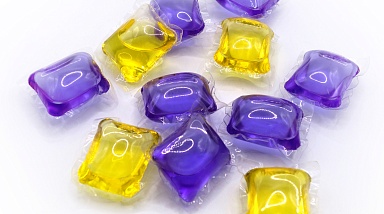
Расширение ассортимента товаров бытовой химии - Капсулы для стирки торговой марки «PerfEco»
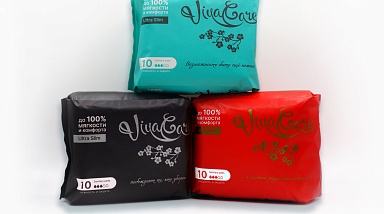
В нашем ассортименте теперь присутствуют товары ТМ «Viva Care» - гигиенические прокладки.
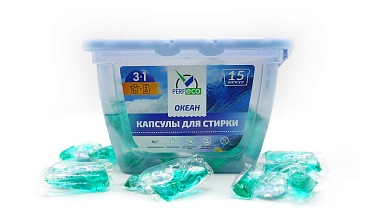
В линии товаров бытовой химии появились новые продукты которые использует каждая хозяйка

С начала 2023 года цены на мандарины в России выросли в среднем на 70%, а к Новому году они могут подняться еще на 5%.
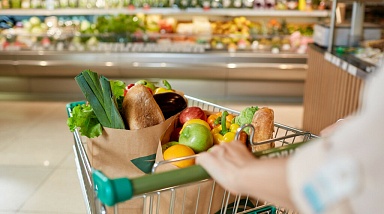
Ритейл активно борется за покупателя, используя различные методы.
Производители товаров массового потребления и торговые компании вынуждены адаптироваться к текущим рыночным условиям и быстро менять свои стратегии.
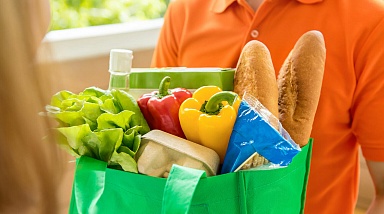
Быстроразвивающаяся категория товаров в электронной коммерции - это товары повседневного спроса. Еще несколько лет назад продуктовый ритейл только начинал экспериментировать с онлайн-продажами, но карантин и последующая цифровизация ускорили этот процесс. Согласно данным Яндекса, уже сейчас 4% пользователей совершают покупки продуктов только в интернете. Более того, каждый третий делает заказы в сетевых магазинах несколько раз в неделю, а 56% сочетают онлайн и оффлайн покупки.
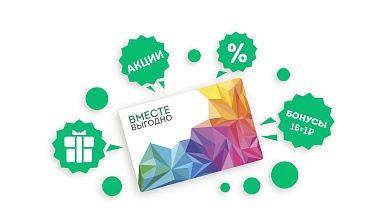
Программа лояльности - это неотъемлемая часть успешной маркетинговой стратегии любого бизнеса. Она не только помогает удерживать существующих клиентов, но и привлекать новых, увеличивая жизненную ценность клиента (LTV).
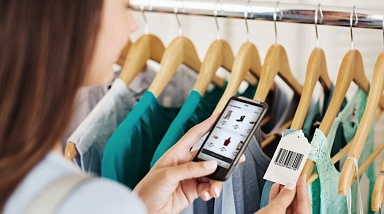
Как изменяются потребительские предпочтения, какие новые технологии влияют на ритейл и что стоит ожидать в будущем.

С 17 по 20 августа во второй раз в Воронеже состоялся крупнейший в Черноземье гастрономический фестиваль «Знай наших» и один из крупнейших музыкальных фестивалей России — Чернозёмфест.
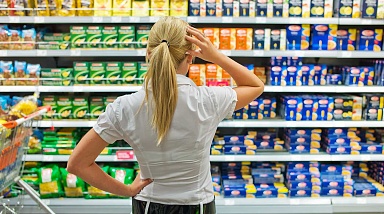
В этом году осенью Госдума рассмотрит законопроект, который будет обязывать торговые сети и магазины указывать цену товара за 1 килограмм или 1 литр.

18-20 августа, в Воронеже на территории Сити-парк «Град» на открытой уличной площадке пройдет гастрономический фестиваль "Знай наших".
Гастрофестиваль проходит в городе уже второй раз. Будут презентованы десятки концепций еды и вкусы разных национальных и региональных кухонь, продукция российских представителей индустрии питания.

Конфликты — это нормальное явление в бизнесе. Их возникновение связано с различием интересов и общением между разными сторонами. Однако, их разрешение способствует развитию и изменениям в компании. Конфликты могут стать возможностью обнаружить проблемы, найти новые решения и улучшить партнерские отношения.
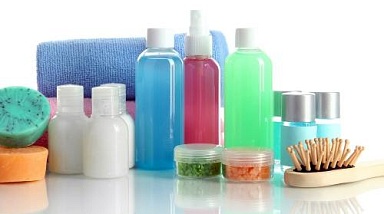
В нашем ассортименте теперь есть предметы бытовой химии: средства для гигиены и косметики, товары для уборки дома, средства для стирки и т.д.

В первом полугодии 2023 года логистическая сфера смогла прийти в некоторую стабильность после двухлетнего периода неопределенности. Спрос на доставку товаров в магазины оказался довольно стабильным, без резких колебаний.
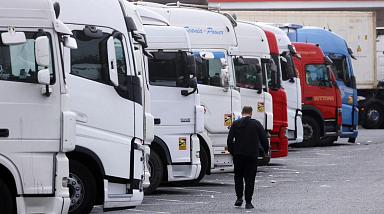
Согласно исследованию Банка России, в январе - марте 2023 года в России зафиксирован рекордный дефицит кадров. Работодатели из нефинансовых секторов экономики заявили о самом низком уровне обеспеченности работниками с момента начала наблюдений Центробанка в 1998 году.
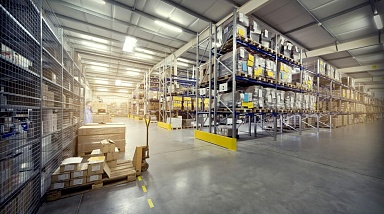
Растет спрос на склады с европейской инфраструктурой и технологиями управления процессами. Появляются новые форматы складских помещений, склады на первых этажах жилых домов и в центральных районах города. В целом, рынок складов в Москве остается стабильным и привлекательным для инвесторов.
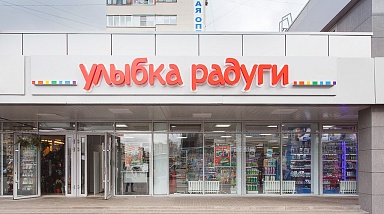
Ритейлер «Лента» планирует присоединить к своим продуктовым еще и магазины косметики и бытовых товаров. Стало известно, что представители компании ведут переговоры по поводу приобретения сети «Улыбка радуги». Официального подтверждения этой информации пока не поступало ни со стороны ритейлера Ленты, ни со второй стороны.

Несмотря на санкции, перевозчики утверждают, что в прошлом году успешно преодолели трудности и даже перестроили логистические цепочки под новые реалии рынка. По итогу 2022 года прирост товарооборота с Китаем составил почти 30%, а с Турцией – почти 85%.

На базе ВГУИТ прошел кулинарный мастер-класс для студентов.
to our news






